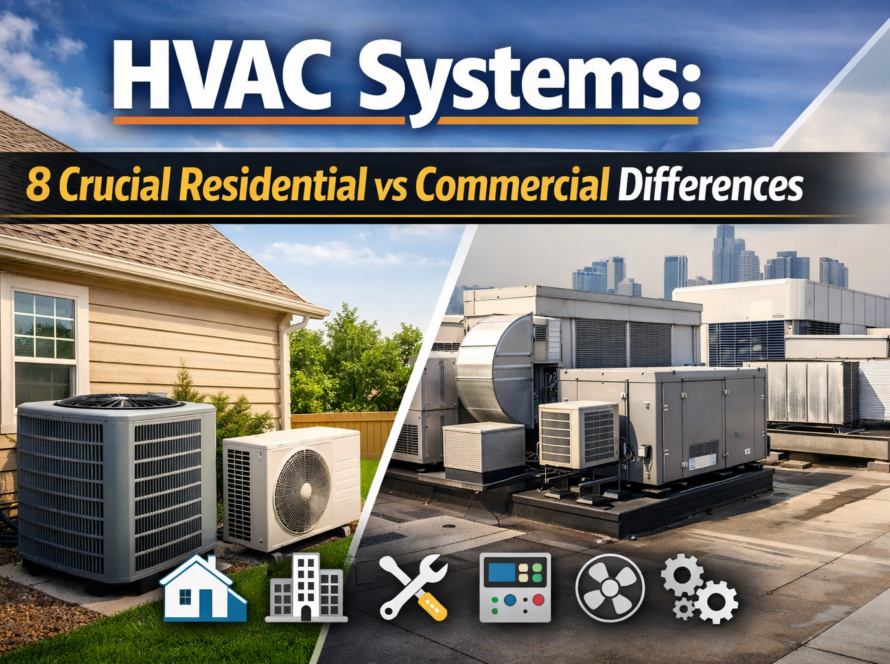In today’s rapidly evolving world, HVAC (Heating, Ventilation, and Air Conditioning) systems are no longer just about basic comfort. They are becoming smarter, more energy-efficient, and increasingly connected to digital technologies. For companies like Phoenix HVAC, which has been in the industry for over four decades, staying ahead requires more than experience—it demands continuous training and adaptation to the latest innovations.
The Importance of Ongoing Training
Technology in the HVAC sector is advancing at an unprecedented pace. From the introduction of smart thermostats and IoT-enabled systems to eco-friendly refrigerants and high-efficiency units, the industry is constantly changing. Continuous training ensures that Phoenix technicians are not only familiar with new technologies but also capable of installing, maintaining, and repairing them to the highest standards.
Embracing Smart and Connected Systems
Today’s homeowners and businesses expect more from their HVAC systems. They want solutions that integrate seamlessly with smart homes and building management systems, offering real-time data, remote control, and energy savings. Phoenix invests in specialized training programs to equip its team with the skills to handle these advanced systems. By doing so, the company guarantees clients benefit from comfort, efficiency, and convenience powered by the latest technology.
Staying Compliant with Environmental Standards
With increasing focus on sustainability and stricter regulations on refrigerants, HVAC companies must adapt to eco-friendly solutions. Phoenix ensures that its technicians undergo EPA 608 certification and regular updates on environmental standards. Continuous training helps them stay compliant with regulations, while also promoting green practices that protect the planet and reduce operational costs for clients.
Partnering with Leading Brands
Phoenix collaborates with top global HVAC brands, including LG, Daikin, Mitsubishi, Trane, and Johnson Controls. Each brand introduces unique innovations, from variable refrigerant flow (VRF) systems to advanced energy-saving technologies. By partnering with these manufacturers, Phoenix provides its team with direct access to brand-certified training, ensuring technicians remain skilled in the latest equipment and installation methods.
Investing in Safety and Precision
Beyond technology, Phoenix prioritizes safety. Regular OSHA training guarantees that technicians operate under strict safety guidelines, minimizing risks in installation and maintenance projects. Continuous training reinforces not only technical expertise but also the values of safety, reliability, and precision—cornerstones of Phoenix’s long-standing reputation.
Customer Confidence Through Expertise
Clients benefit directly from Phoenix’s commitment to training. Certified and highly skilled technicians inspire trust and confidence, reassuring customers that every project—whether residential or commercial—is handled with expertise. By staying ahead of industry trends, Phoenix not only meets customer expectations but often exceeds them, offering solutions that are innovative, efficient, and future-ready.
Preparing for the Future of HVAC
The future of HVAC will likely bring even more advanced innovations, from AI-driven climate control to fully sustainable energy solutions. Phoenix is committed to preparing its workforce for this future through ongoing training, certifications, and hands-on learning experiences. This proactive approach ensures that the company remains a leader in HVAC excellence, ready to tackle tomorrow’s challenges with confidence.
Conclusion
For Phoenix HVAC, continuous training is not an option—it’s a necessity. By staying current with technological advancements, environmental regulations, safety standards, and brand innovations, Phoenix guarantees that its clients always receive cutting-edge solutions. With over 43 years of experience, the company combines tradition with innovation, proving that the key to long-term success lies in a commitment to learning, adapting, and leading in the HVAC industry.


